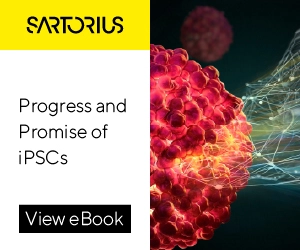Introduction
Natural Killer (NK) cell therapy has taken the spotlight in the fight against cancer. But what makes this emerging treatment so promising that biotech companies are rapidly advancing their NK cell therapy candidates to the clinic? This report delves into the current landscape of NK cell therapy, examining the progress of top companies and discussing how these immune cells are poised to revolutionize cancer treatment.
The Rise of NK Cell Therapy
NK cells, a subset of white blood cells, serve as vigilant soldiers in the body’s defense system, swiftly eliminating diseased cells like tumors. Their ability to kill targets without prior sensitization is central to the appeal of NK cell therapy. Unlike the more established CAR-T therapy, which modifies a patient’s own T cells to target cancer cells, NK cells can identify and destroy cancer cells even without tumor-specific antigens. This inherent efficiency reduces the risk of cytokine storms and other side effects common with CAR-T therapy.
Artiva Biotherapeutics
Artiva Biotherapeutics made waves when their non-genetically modified NK cell therapy, AlloNK, received Investigational New Drug (IND) clearance from the U.S. Food and Drug Administration (FDA) for lupus nephritis. This milestone marked the first FDA approval of its kind for an autoimmune disease. AlloNK’s success lies in enhancing antibody-dependent cellular cytotoxicity (ADCC), enabling it to kill cancerous B cells efficiently. Artiva also has AB-101, which demonstrated a 57.1% Objective Response Rate (ORR) in phase 1 trials when combined with rituximab. With this foundation, Artiva’s oncology pipeline addresses a range of CD30-positive lymphomas and B-cell malignancies.
Dragonfly Therapeutics
Dragonfly’s proprietary platform, TriNKETs, activates both innate and adaptive immune systems by engaging NK cells and CD8 T cells to target cancer cells. Their DF1001 drug, in phase 1/2 trials for solid tumors, leverages TriNKETs to engage HER2-positive tumor cells. This engagement has shown a significant 67% pharmacodynamic response. The company’s collaboration with pharmaceutical giants like AbbVie and Merck is expected to speed up market penetration.
Fate Therapeutics
Fate Therapeutics utilizes a unique off-the-shelf approach for CAR-NK cell therapy, drawing from induced pluripotent stem cells (iPSCs). Their flagship candidate, FT576, targets B-cell maturation antigen (BCMA) and enhances NK activity through an IL-15 receptor fusion. This therapy and others like FT522, FT819, and FT825 demonstrate the company’s comprehensive focus on blood cancers and solid tumors. The pluripotent nature of iPSCs provides a platform for scalable, off-the-shelf NK therapies.
Glycostem Therapeutics
Glycostem’s platforms, oNKord and viveNK, are designed to tackle both solid and blood cancers like AML and multiple myeloma. Their CAR cell therapy, viveNK, reduces the risk of graft-versus-host disease (GvHD), while oNKord, an unmodified NK therapy, has earned orphan drug status from the FDA.
ImmuneBridge
This company leverages cord blood-derived immune stem cells to develop allogeneic NK cell therapies that balance scalability and safety. Recently, ImmuneBridge secured $12 million in funding, a testament to their platform’s potential.
ImmunityBio
ImmunityBio’s Anktiva interleukin-15 superagonist fusion protein bolsters NK cells while mitigating regulatory T cell activity. Their CAR-NK therapy platform, t-haNK, is poised to redefine immunotherapy by combining multiple technologies, including PD-L1 t-haNK and M-ceNK memory-like NK cells.
Nkarta
Nkarta pioneers NK cell therapies like NKX101, engineered to target NKG2D ligands in AML. They also have NKX019, which targets CD19 in B-cell malignancies. Nkarta’s focus on reducing CAR-T therapy’s risks and side effects will be crucial for NK cell therapy’s adoption.
NKGen Biotech
NKGen’s SuperNK (SNK) autologous therapy activates a patient’s own NK cells to fight neurodegenerative diseases and solid tumors. Their SNK02 CAR therapy is currently in preclinical testing for HER2-positive tumors.
ONK Therapeutics
ONK Therapeutics employs gene editing and antibody therapeutics to enhance NK cell cytotoxicity. Their innovative use of CISH knockout (KO) has given them a competitive edge in optimizing NK cell therapies. Their collaboration with NAYA Biosciences opens avenues for improved combination therapies.
Senti Biosciences
Senti’s Gene Circuit Technology Platform programs NK cells to respond specifically to their environment. Their SENTI-202 candidate, targeting AML, harnesses DNA-based smart sensors to target CD33 and FLT3, both proteins common in blood cancers.
NK Cell Therapy vs. CAR-T Therapy
While CAR-T therapy is revolutionary, its high costs, lengthy preparation, and risks like cytokine storms highlight the need for better alternatives. NK cell therapy, particularly CAR-NK cells, offers a solution with off-the-shelf, scalable options, fewer side effects, and broader applicability. NK cells can kill cancer cells even when antigens are scarce, addressing resistance mechanisms in tumors. By modifying their genes and using smart sensors, biotech companies are enhancing NK cells to outperform current treatments.
Conclusion
Natural Killer cell therapy is on track to redefine cancer treatment. With superior targeting mechanisms, minimized side effects, and scalability, these therapies are attracting significant attention. Companies like Artiva, Dragonfly, and Fate are leading the charge, demonstrating the immense potential for innovation in this field. While challenges remain, particularly in manufacturing and regulatory pathways, NK cell therapy stands poised to take on CAR-T and other conventional treatments. As we move forward, these promising developments will undoubtedly shape the future of immunotherapy and cancer care.





